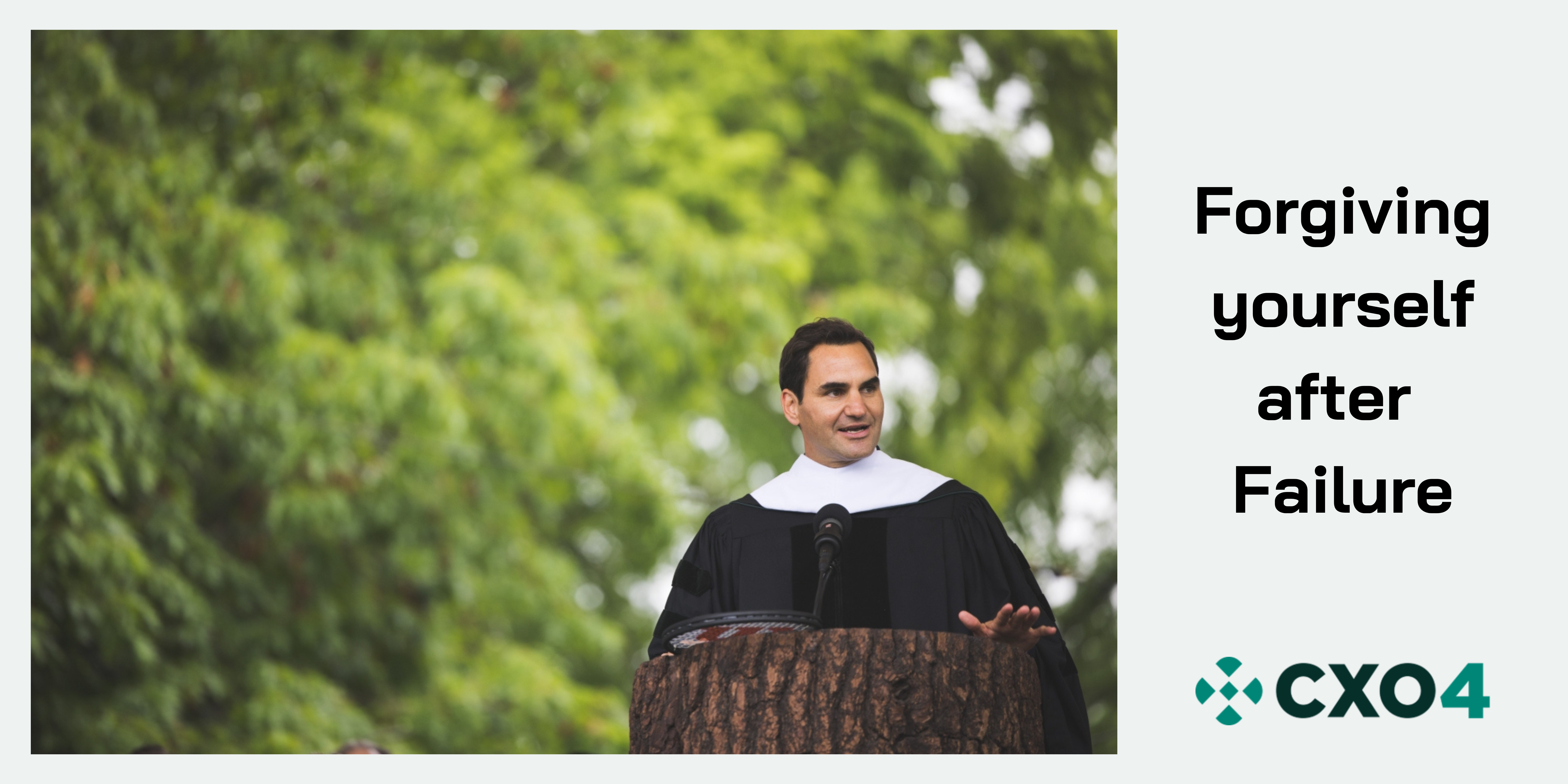
As many of you know, besides my extensive career in corporate leadership, I am passionate about tennis. Two years ago, I took on the challenge of captaining a tennis team, and it was incredible to see how my leadership skills translated to this new arena.
Recently, I made my first major mistake as a captain. A simple typo in an email to my opponent’s captain made her believe we were defaulting a line, costing us a crucial point. Although this point didn’t affect the final outcome, at the time, I feared it might cost us a championship spot. This mistake haunted me. I lost sleep, replaying the moment endlessly and berating myself for it.
A Reminder About Self-Forgiveness
This experience reminded me of an essential lesson in self-forgiveness—a concept Roger Federer eloquently discussed in his commencement speech at Dartmouth. Federer emphasized the importance of treating each point in tennis as the most critical one at that moment. But once it’s over, it’s history. He said, “This mindset is crucial because it frees you to fully commit to the next point (and the next, and the next) with intensity, clarity, and focus.”
The Power of Self-Forgiveness
Forgiving yourself is not just a platitude; it’s a powerful tool for personal and professional growth. We often hold onto our mistakes, wishing the past could be different. The irony is that by clinging to our failures, we perpetuate our own suffering. This mental and emotional burden drains our energy and diminishes our potential.
Self-forgiveness allows us to release this burden, freeing up mental space and emotional energy to focus on what truly matters: the opportunities ahead. It’s about shifting our perspective from regret to learning, from self-criticism to self-compassion. This shift is transformative; by accepting and moving past our losses, we open ourselves up to future wins.
Insights from a Rising Professional
To gain another perspective, I spoke with Angie, CxO4’s Communications Specialist. She is currently transitioning from university to the corporate world. When I asked if she had faced similar challenges, she shared:
“It didn’t just happen once; it happens to me every day. I’m a perfectionist. I put a lot into everything I do—whether it’s for school, work, or personal projects. I put myself under immense pressure. I tend to get very frustrated when things go wrong. Because I hate making mistakes, I anticipate every possible scenario, leading to anxiety. While striving for perfection can yield good results, it sometimes overwhelms me, affecting my mental stability and overall performance.”
Angie’s experience highlights the pervasive nature of self-criticism, holding onto mistakes, and the toll it takes on our well-being and our performance.
The Path Forward
My tennis mishap and Angie’s daily battle with perfectionism underscore the importance of forgiving ourselves—and doing so quickly. Forgiveness is not about erasing our mistakes but about acknowledging them, learning from them, and moving forward. It releases us from regret and opens us up to what’s next.
As Roger Federer wisely notes in his speech, “Negative energy is wasted energy.” True champions, whether in sports or business, master the art of accepting losses quickly and moving forward with renewed clarity, energy, and focus. What sets them apart is their ability to learn and grow from every experience.
Cultivating a Culture of Continuous Improvement
As a business leader, I, and the CxO4 team, encourage you to cultivate a culture of continuous improvement, where failures are seen not as setbacks but as integral parts of our path to success. By fostering an environment where self-forgiveness and resilience are valued, we can unlock our true potential and drive innovation and growth within our organizations. Let’s follow Federer’s example and remember that every step, even those that seem like setbacks, brings us closer to our ultimate goals.